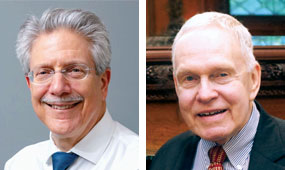Why Do an Addiction Psychiatry Fellowship?
Abstract
Recent government data indicate that almost 50 million people aged 12 and older had a substance use disorder in 2022. The need for skilled and caring addiction psychiatrists has never been greater. Is this field for you?

Meet them where they are at: This has been the mantra guiding our clinical care delivery, from our adult psychiatry residency and throughout our training and independent practice as an addiction psychiatrists.
One of the authors of this article (Dr. Dawes) offers this case as an example of why that message is so important: The patient was a middle-adolescent female, whom we’ll name Anna. Her parents divorced two years prior to initial intake. When I first met Anna, she was argumentative—with me, as well as her father and stepmother; and her behavior was oppositional in multiple settings. Anna began smoking marijuana and nicotine cigarettes in her early teens. Three months after starting psychotherapy, she ran away. I treated her and her family for three years, often meeting them in community and residential settings. The first year of our meetings was rocky with many missed appointments. One day in the second year of therapy, Anna asked why I kept showing up at her various community settings. I said: “Remember when we first met, and I promised to stick with you through thick and thin? I meant it.” This reminder strengthened our relationship. In the next year, the arguments and oppositional behavior decreased, communication and trust with her parents improved, and she worked on her GED. Marijuana and tobacco use also decreased.
This commitment to stick with patients, through “thick and thin,” to engage with them in a trusting therapeutic relationship, is at the core of one’s identity as an addiction psychiatrist. This commitment motivated me to pursue additional training in child and adolescent and addiction psychiatry, to enhance my skills, knowledge, and confidence to treat patients like Anna. And this passion continues to shape how our addiction psychiatry fellowship trains fellows to deliver accessible low-barrier care across a range of community, outpatient, inpatient, and residential settings.
Cases like Anna’s are both challenging and highly rewarding. They serve as an introduction to this Psychiatric News series on the exciting field of addiction psychiatry. The authors have had more than 30 years of experience in training psychiatry residents and fellows to treat patients with substance use disorders (SUDs) and co-occurring psychiatric disorders. As such, we have a clear perspective on what such training should entail and what training components contribute to developing the knowledge, skills, and confidence to practice addiction psychiatry.
Q. Why enter a career in addiction psychiatry?
A. The United States continues to be in a nationwide opioid epidemic with increasing numbers of overdose deaths. Opioid use disorder and other SUDs are chronic conditions that are highly comorbid with other psychiatric disorders and other medical disorders, and these chronic disorders are highly treatable with integrated treatments. There is a critical need for skilled physicians—especially addiction psychiatrists—to treat individuals with these conditions.
Addiction psychiatry fellowship training consists of one-year clinical fellowship and offers ACGME-board eligibility. Practicing in this rewarding subspecialty gives you an opportunity to use a wide range of psychiatric and medical skills. Interactive learning and case-based supervision involves the assessment and treatment of individuals with SUDs, including alcohol, tobacco, cocaine, methamphetamine and other stimulants, benzodiazepines, opioids, cannabis, psychedelics, and designer drugs. Patients also often present with behavioral disorders, including gambling, internet addiction, and other technology addictions.
Most psychiatry residents pursue addiction psychiatry fellowship training due to their inherent interest and curiosity to better understand and treat the bio-psycho-social-spiritual factors that underlie addiction processes and comorbid conditions. There is an extensive research base and need for continued clinical and translational research, advocacy, and prevention for all aspects of addiction.
In summary, addiction psychiatry training leads to a wide variety of career paths and the opportunity for an attractive work-life balance combined with the potential for a slightly higher salary than that of general adult psychiatrists. Together, these factors make addiction psychiatry training a very attractive option and career path.
Q. How do I learn more about addiction psychiatry training?
A. Visit the website of the American Association of Addiction Psychiatry here. ■




